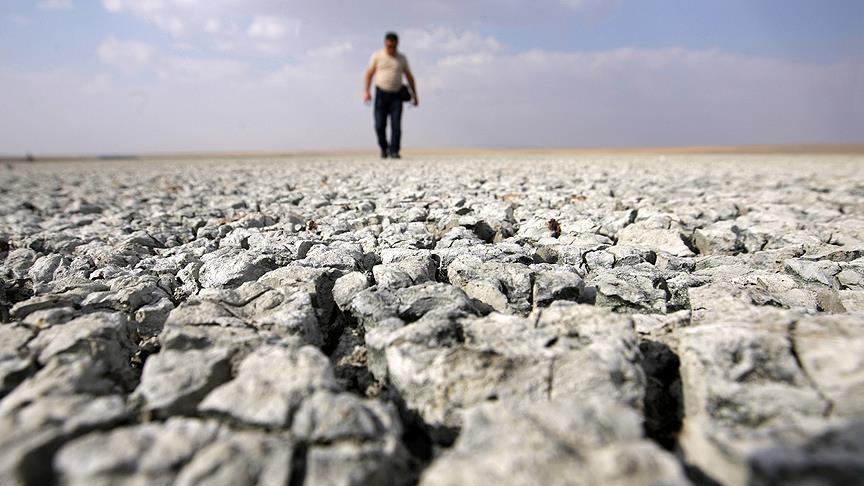Africa-Press – Eritrea. – ‘No sign immediately that impacts of climate change is going to change within the next 12 months or so,’ says Leslie Mabon of UK’s Open University
– Wealthier, high-emitting nations like US, UK need to take the lead as climate change is disrupting supply chains, global economy and affecting all aspects of life, says Mabon
– Impossible to avoid ‘dangerous and harmful’ levels of climate change without reducing world’s dependence on fossil fuels, says expert
The year 2023 was full of “warning signs” about the growing impact of climate change and threat of catastrophic environmental disasters, and “we can expect more of the same” in 2024, according to an environmental expert.
“Although we have agreements on continuing to reduce emissions and working towards the net-zero emissions target, there’s no sign immediately that impacts of climate change is going to change within the next 12 months or so,” Leslie Mabon, lecturer in environmental systems at the Open University in UK, told Anadolu.
“So, I think all signs are there. We’ve seen in 2023 that, in all kinds of seasons, the kind of extremes that we’re getting are greater and that they’re starting to have consequences for people’s livelihoods, and also for the economy more widely… We’ve seen enough warning signs from 2023, and we can expect more of the same in the coming year.”
The world witnessed numerous alarming environmental events in 2023, many of which were either caused or notably exacerbated by climate change, Mabon said.
“We’ve already seen the negative effects of climate change on food security and the level of water. It’s also starting to disrupt supply chains, global economy and businesses, as well as starting to negatively affect people’s ability to work, their houses and daily lives,” he said.
What is most concerning is that the places and people most vulnerable to extreme weather events often lack the capacity to adapt or are already grappling with other crises, he said.
‘Some positives, but also challenges’
Mabon said the world has seen “some positives” in efforts to mitigate the effects of climate change, mentioning the outcomes of the 2023 UN Climate Change Conference, or COP 28, held in Dubai last month.
“But there are also some challenges too,” he emphasized.
He stressed the need for wealthier and historically high-emitting nations, like the UK, US and EU nations, to show leadership in reducing their emissions and fossil fuel production before expecting less wealthy nations to take the initiative.
“If they want to be seen as global leaders, I think they need to do a lot more to actually take action themselves,” Mabon said.
He said COP is a crucial platform where significant discussions can take place allowing less affluent nations to present their cases, but there remains a lot of concern about the very slow progress.
This, however, is just one of a number of venues where climate action can be pushed globally, said Mabon, adding that various networks and organizations that exist, as well as city and regional governments, can also play a critical role in this regard.
Cutting fossil fuel dependence
Without reducing the world’s dependence on fossil fuels, it is going to be impossible to avoid “dangerous and harmful” levels of climate change, said Mabon.
“We’ve seen time and time again that renewable energy and solar wind has consistently exceeded estimates and expectations for how quickly it can be deployed in terms of capacity and also how efficiently it can be deployed in terms of cost,” he said.
Another absolutely vital issue, particularly for high emitting nations that have the most responsibility, is about “reducing demand” for fossil fuels through things like less flying, more efficient heating and cooling of homes, he said.
He underlined the political and technological obstacles in achieving a fast transition to a clean-energy future, such as pushback from the fossil fuel industry.
“We know that, historically, the fossil fuel industry has been very slow to act and very effective in lobbying governments,” he said.
“It’s very easy to point the finger of blame at Saudi Arabia and the United Arab Emirates, but let’s remember as well, a lot of these fossil fuel producers are located in high-emitting nations like EU countries, the US, and the UK.”
It is also important to think about the role of technologies like hydrogen and carbon dioxide capture and storage in getting to net zero, he added.
Mabon said oil and gas companies may view carbon capture and the storage process as a means to recover more oil, which they believe will contribute to technological development.
However, the danger is that this effectively grants high-emitting companies a license to persist in producing environmentally harmful energy, without necessarily bringing in cleaner and more efficient forms of this technology, according to Mabon.
He also outlined the steps that should be taken, not just by governments but also by businesses, communities and households, such as minimizing air travel, reducing meat consumption and reassessing transportation choices.
People all around the world also have the power to enact change by pressing leaders for more robust measures against companies and to expedite the transition to renewable energy, he added.
For More News And Analysis About Eritrea Follow Africa-Press







